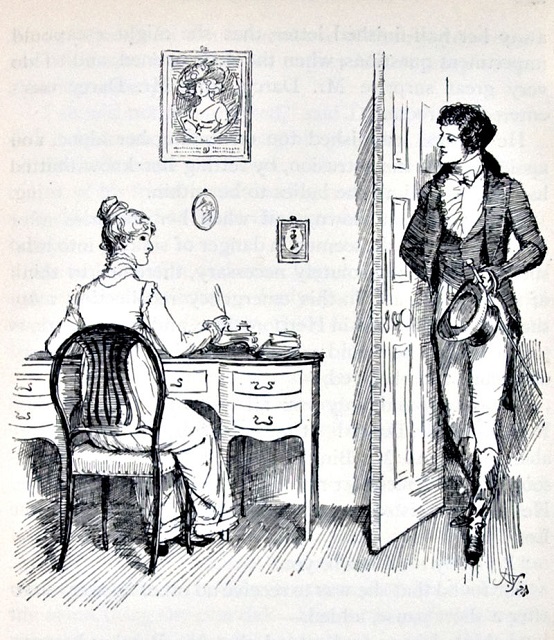I was walking the dark streets in San Francisco at 3:00 a.m. in a bit of a trance.
Fresh out of high school, hitchhiking across the country, and on my own for the first time—I’d just been hit on by a man who prefers men.
I was treated like a sexual object—objectified and wounded by the brunt of someone else’s blunt, biological desires.
He didn’t even know me, but he wanted to have sex with me. I didn’t feel special. I felt used—a casualty of a far too common sexual problem: depersonalization.
As I walked, I heard footsteps behind me.
I was a kid from the Chicago suburbs in a strange city, with just my backpack and wounded innocence. “Help,” I thought loudly.
My heart filled with fear. I wanted to run—but instead, I cringed, staring straight ahead as a stranger walked up next to me and spoke.
Wisdom from a stranger.
“Are you okay?” he asked
I wasn’t.
I blurted out: “I have just had a unwanted advance from a guy. I feel scared, compromised, dirty, terrified, and lost.”
“Um,” he said, empathetically, feeling what I had just said without an overt reaction.
Several minutes later, he spoke, “Now you know what it is like to be a woman. Women receive unwanted, impersonal, scary, sexual attention all the time—everywhere they go.”
The problem.
In that moment, I realized that he was right.
Women get oogled, approached, whistled at, touched inappropriately, and marginalized regularly. That night, I was feeling what women experience often—and I didn’t like it one bit.
Surely, there had to be a better way for us to relate, work out our sexual differences, get along, and love each other.
Pondering people’s different approaches to sex and connection, I realized that sex isn’t the problem at all. The problem is that rather than being just one’s self, we are each three very different selves.
Each of us has a spiritual self, a biological self, and a personal self.
Our spiritual self focuses on unlimited love and connection, while our biological self is composed of primal drives, including the desire for sex—and our personal self offers us an architecture of preferences, likes and dislikes.
These three selves get up to mischief when we connect with each other, since each of them is as different as can be. Their different desires and motivations make relating to one another a mixed bag of complications and problems.
Three selves.
Our biological self wants sex; it wishes to assert power and to dominate. The personal self wants to find just the right person to connect with and would rather go to a museum than hop into bed. The diversity of these two desires pits our selves against each other in a civil war.
When biological self meets personal self, someone is likely to feel objectified and under-appreciated.
With our spirit self, differences melt away, and we are all one. Our infinite spirit selves love each other unconditionally.
In the biological self, we are driven to connect, copulate, and reproduce. This is the place of deep irrational desires that quickly rises to a fight, or a sexual conquest.
In the personal self, we differentiate ourselves and become as unique as our fingerprints, with the speckled expression of likes and dislikes. Our personality is the sensitive rise of personal being.
Spirit loves, biology desires, and personality expresses our uniqueness.
When it comes to sexuality, most men are driven by the biological self—most women by personal self.
The biological self grunts, “Sex, now,” at the grocery store cashier, spouse, co-worker, or any female within reach. Of course, most of us don’t overtly act on this sort of primal desire, but it still has its way with us, demanding what we can’t have.
Personality isn’t so driven; it wishes for a partner to provide us with love, caring, and the things that compose a life well lived. Personality wants to be liked; it wants a candlelight dinner at a fine French restaurant, or at home.
If conditions are right, personality wants sex.
The motif created when the biological drive and personality meet is a bit like a caveman meeting a delicate artist. Cavemen had no need for vases of flowers, and the cave-person within each of us just wants to throw down anytime, anywhere, and fight for the right to have sex.
Personalities are overwhelmed by the biological self, unwanted advances, and raw sexual attention.
Our cultural dynamic demands that men shove down their biological drives—and that women, in general, mother from their spirit selves and submerge their personal selves in relationship, totally ignoring their biological selves.
The demand of our different selves results in men and woman seldom being in the same place at the same time, even when they are curled up together in bed, or holding hands walking through a field of daisies or on a beach.
The solution to this age-old problem of our different selves is simple, but not easy.
The solution: coming together.
When my biological self meets your biological self, all is well—we grunt, groan, and touch each other. We may even fight, but it is a fight between equals, and it is fun and rewarding.
But when a biological self meets a personal one, there is trouble. The personal self feels ignored and not appreciated. It gets hurt by the sheer force of biological desires.
Getting to know your own three selves—spiritual, biological, and personal—is the first step, and it’s sufficient to smooth the ragged edges of desire, while admitting all three selves into our focus of attention.
Admit it—you love everybody. That is the way that spirit expresses itself.
Admit it—you want to fight and screw everybody and everything. That is your biological drive.
Admit it—you want what you want, when you want it. It is important to have the car you want, the life you want, and to watch your favorite TV programs, be they soap operas or sports. That is the way personality expresses itself.
There will always be more of one of these three selves in the focus of attention, one of the three surrounding attention only partially in awareness, and one that very seldom receives focus of attention.
Getting to know ourselves as all three—spiritual, biological, and personal—offers us the flexibility to relate to our partner’s trio of selves as well.
If we notice that our partner is focused on personal self, we can bring our personal self into our focus of attention and plan the perfect dinner or vacation. But, if our partner’s biological self is front and center, we can join them there and have a loving wrestling match commingling our physical desires.
When we are both focused on our spiritual selves, we can celebrate our perfection and save the world together.
The best of the best.
The best sex happens naturally when our biological selves mingle their raw desires together.
We make the world a better, inspired, and lighter place when my spirit and yours are on the same page.
When our personalities meet, we can hammer out a logistical dance (or marriage) in which we each get just enough of what we want to live well together, cuddle, and write our own love story.
However, when my biological self meets your personal self, then something has to give. We need to notice that something isn’t working and strive to resolve it equally; this must happen before—not after—we make an imbalanced, emotional mess and go our separate ways.
The energetic hierarchy of these three selves is that spirit is the most powerful, followed by biology, and then personality.
Our connections—in order to be rewarding and manageable—must balance these three selves. It takes practice, but results in deep self-awareness and living in a world of unlimited love and connection.
~
Relephant:
10 Sex Techniques to Evolve Your Lovemaking.
The Unique Power of Deeply Intimate Sex.
6 Ways to Have Radically Intimate Sex.
~
Author: Jerry Stocking
Image: WikiMedia Commons
Editor: Yoli Ramazzina
Copy editor: Callie Rushton
Social editor: Cat Monkman



Read 0 comments and reply